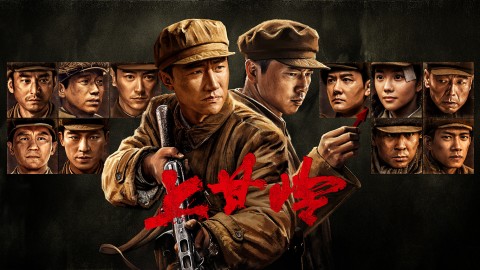Episode 16 recap: Mao Zedong established a party branch in Shaoshan.
Mao Zemin told Mao Zedong that he wanted to divorce his wife, Wang Shulan, and Mao Zedong agreed. Yang Kaihui asked Mao Zedong why he agreed, as their child was only two years old. Mao Zedong told her that Zemin's current work was very dangerous, and he didn't want to involve Shulan and their child.
Yang Kaihui believed that a husband and wife are one entity, sharing happiness and difficulties together, just like them. Mao Zedong told her that they were different. Yang Kaihui was a revolutionary, and they were comrades. However, Wang Shulan was different. She had bound feet and couldn't travel far.
Upon hearing this, Yang Kaihui didn't say anything further and asked about the child and Wang Shulan's situation. Mao Zedong told her that the child was about the same age as their Anchang, so they would keep the child and raise them in their home. As for Wang Shulan, she would always be a part of their Mao family and their sister-in-law. Mao Zedong told Ma Fuxuan that in order to unite and resist Cheng Xusheng, they needed to establish a party branch.
After returning home, Mao Zedong shared this idea with Yang Kaihui, who strongly agreed. They discussed who would be suitable as the first batch of party members. In 1925, Mao Zedong conducted the initiation ceremony for Zhong Zhishen, Pang Shukan, Li Genghou, and Mao Xinmu in his attic at home, establishing the Shaoshan branch. Ma Fuxuan became the branch secretary. This was the first grassroots organization of the party established by Mao Zedong in the countryside.
Shaoshan experienced a drought, and the farmers had no food to eat. Pang Shukan secretly took out the grain from his home, and his father almost broke his leg in anger. However, the amount of grain was still far from enough, causing great difficulty for Mao Zedong. Pang Shukan was prepared to go home and get more, and Yang Kaihui asked if he didn't want to come back.
Cheng Xusheng told his wife to watch, as the grain prices would multiply due to the drought this year. Just as he finished speaking, Mao Zedong arrived at his house. Mao Zedong brought Luo Lao and asked Cheng Xusheng to open the granary and stabilize the prices, as the prices outside were too high.
Cheng Xusheng pretended to be hesitant, but after repeated persuasion from Luo Lao and Mao Zedong, he agreed to provide 200 stones of grain. Just as Mao Zedong and Luo Lao were about to leave, Luo Lao told him that Cheng Xusheng could provide not just 200 stones but 2,000 stones.
As Luo Lao left, Mao Zedong saw several people hurriedly heading towards Cheng Xusheng's house. True to his suspicions, people reported to Mao Zedong in the evening that a large number of carriages were being sent to Cheng Xusheng's house. Mao Zedong guessed that Cheng Xusheng was planning to transport the grain to another location during these two days.
Mao Zedong also figured out that Cheng Xusheng intended to lure them away from the mountain. He knew that if Cheng Xusheng didn't take the land route, he would take the waterway. Mao Zedong arranged for Mao Fuxuan to block the road he would pass through and intercepted his grain. The villagers looked at the piles of grain and shouted with joy, knowing that they wouldn't starve anymore.
Their faces were filled with happy smiles, contrasting with the worried expression on Cheng Xusheng's face as he watched his grain being sold at a low price. Despite the gratitude expressed by the kneeling people, he couldn't find happiness. Yang Kaihui looked at the group of people not far away and told Mao Zedong that even if the grain was sold at a fair price, those people couldn't afford it.
Mao Zedong ordered Mao Fuxuan to use their money to buy the grain and give it to the farmers. When Cheng Xusheng returned home, he couldn't hold it in any longer. He shouted at Mao Zedong, vowing to make him pay for the humiliation he suffered that day.
Cheng Xusheng instructed his steward to write a letter to Governor Zhao, informing him of Mao Zedong's act of looting grain with a crowd. He believed that unless Mao Zedong was eliminated, he couldn't get rid of this grudge. Wang Jingwei was elected as the President of the country, inheriting Sun Yat-sen's will and abolishing unequal treaties with foreign countries.
Jiang Jieshi came to congratulate Wang Jingwei on becoming a deserving President. However, Wang Jingwei said that the revolution had not yet succeeded, and Sun Yat-sen left with regret. Now, with the title of President bestowed upon him, he felt deeply saddened. China was currently in a state of fervor, and he knew that Jiang Jieshi was an indispensable military talent.
Wang Jingwei asked Jiang Jieshi what should be done in the current situation, and Jiang Jieshi shared his thoughts. Wang Jingwei thought he spoke very well.



Comments(Episode 16)